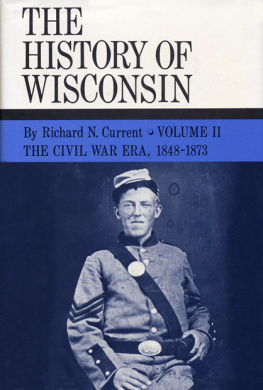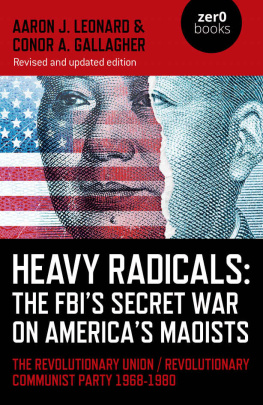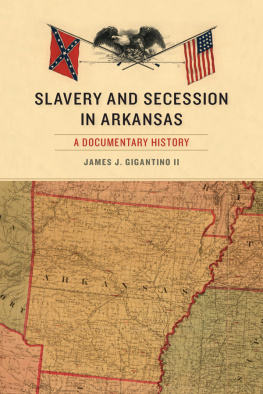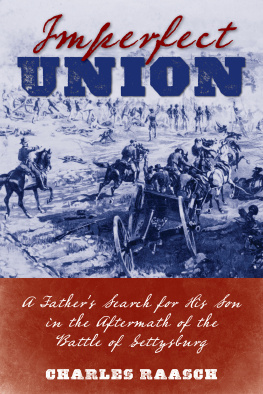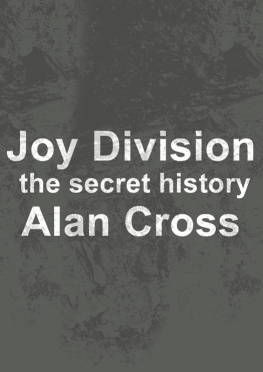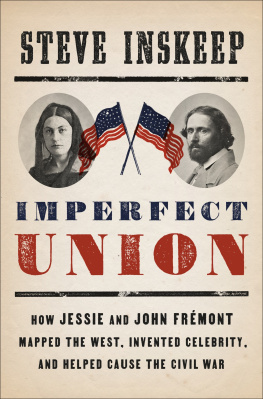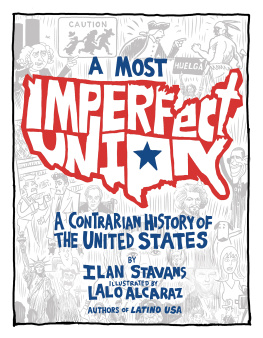Richard Kreitner - Break It Up: Secession, Division, and the Secret History of Americas Imperfect Union
Here you can read online Richard Kreitner - Break It Up: Secession, Division, and the Secret History of Americas Imperfect Union full text of the book (entire story) in english for free. Download pdf and epub, get meaning, cover and reviews about this ebook. year: 2020, publisher: Little, Brown and Company, genre: Politics. Description of the work, (preface) as well as reviews are available. Best literature library LitArk.com created for fans of good reading and offers a wide selection of genres:
Romance novel
Science fiction
Adventure
Detective
Science
History
Home and family
Prose
Art
Politics
Computer
Non-fiction
Religion
Business
Children
Humor
Choose a favorite category and find really read worthwhile books. Enjoy immersion in the world of imagination, feel the emotions of the characters or learn something new for yourself, make an fascinating discovery.

- Book:Break It Up: Secession, Division, and the Secret History of Americas Imperfect Union
- Author:
- Publisher:Little, Brown and Company
- Genre:
- Year:2020
- Rating:4 / 5
- Favourites:Add to favourites
- Your mark:
- 80
- 1
- 2
- 3
- 4
- 5
Break It Up: Secession, Division, and the Secret History of Americas Imperfect Union: summary, description and annotation
We offer to read an annotation, description, summary or preface (depends on what the author of the book "Break It Up: Secession, Division, and the Secret History of Americas Imperfect Union" wrote himself). If you haven't found the necessary information about the book — write in the comments, we will try to find it.
Richard Kreitner: author's other books
Who wrote Break It Up: Secession, Division, and the Secret History of Americas Imperfect Union? Find out the surname, the name of the author of the book and a list of all author's works by series.
Break It Up: Secession, Division, and the Secret History of Americas Imperfect Union — read online for free the complete book (whole text) full work
Below is the text of the book, divided by pages. System saving the place of the last page read, allows you to conveniently read the book "Break It Up: Secession, Division, and the Secret History of Americas Imperfect Union" online for free, without having to search again every time where you left off. Put a bookmark, and you can go to the page where you finished reading at any time.
Font size:
Interval:
Bookmark:

Copyright 2020 by Richard Kreitner
Cover design by Lauren Harms
Hachette Book Group supports the right to free expression and the value of copyright. The purpose of copyright is to encourage writers and artists to produce the creative works that enrich our culture.
The scanning, uploading, and distribution of this book without permission is a theft of the authors intellectual property. If you would like permission to use material from the book (other than for review purposes), please contact permissions@hbgusa.com. Thank you for your support of the authors rights.
Little, Brown and Company
Hachette Book Group
1290 Avenue of the Americas, New York, NY 10104
littlebrown.com
twitter.com/littlebrown
facebook.com/littlebrownandcompany
First ebook edition: August 2020
Little, Brown and Company is a division of Hachette Book Group, Inc. The Little, Brown name and logo are trademarks of Hachette Book Group, Inc.
The publisher is not responsible for websites (or their content) that are not owned by the publisher.
The Hachette Speakers Bureau provides a wide range of authors for speaking events. To find out more, go to hachettespeakersbureau.com or call (866) 376-6591.
ISBN 978-0-316-51059-2
E3-20200703-JV-NF-ORI
For Brahna
Were you looking to be held together by the lawyers?
Or by an agreement on a paper? Or by arms?
Naynor the world, nor any living thing, will so cohere.
W ALT W HITMAN , DRUM -TAPS , 1865
THE COUNTRY WAS DIVIDED. It had been an explosive election, the culmination of decades of fighting over questions that went to the very heart of the nations character. The president-elect was at odds with a majority of voters. Citizens had sorted themselves into camps, sects even, swearing the other sides position was unconscionable. Mainstream politicians spoke darkly about a coming conflict, and those on the margins called for revolution. Others wagered the country had seen worse and unity would surely prevail.
The historian Henry Adams called that time the great secession winter. Republican candidate Abraham Lincoln had won the November 1860 election with less than 40 percent of the popular voteand without the support of a single slave state. Terrified of the future, alienated from a country they no longer recognized, unwilling to remain loyal to a government that served interests opposed to their own, several Southern states plotted their departure. Fed up with trying to hold together a union that no longer made sense, many Northerners were content to send them on their way.
The onset of war, with the Confederate bombardment of Fort Sumter in Charleston Harbor on April 12, 1861, changed everything. In his memoir Specimen Days, Walt Whitman wrote of his joy at the volcanic upheaval of the nation that followed. He thought it the grandest and most encouraging spectacle in the history of political progress and democracy.
Before its end, that spectacle brought death to some seven hundred thousand Americans, scores of whom Whitman, as a nurse in army hospitals, comforted in their final hours. But the ever-expansive poet grasped the bigger picture: the rupture revealed the American soul. It was not for what came to the surface merely, he recalled, but what it indicated below, which was of eternal importance. Underneath was a primal hard pan of national Union will. Contrary to prediction, the American people thought their country worth saving after all. The man who had written, back in his blacker-bearded days, that the United States themselves are essentially the greatest poem now saw that only after the Union had been sundered did Americans finally realize how much it had meant to them all along. That this disunion could foster a deeper love for the Union was, to Whitman, the best lesson of the century, or of America, and it is a mighty privilege to have been a part of it.
The 2016 presidential election set off a volcanic upheaval unlike any since the one Whitman welcomed in 1861. The next day, many Americans walked around as if in a daze, their faces the portrait of a divided nation: shock tinged here and there, depending on where one lived, by exaltation or dismay. Across the heartland, Donald Trumps supporters, those he called the forgotten men and women of this country, swelled with pride and satisfaction, while in New York City, a cold, dreary rain seemed to embody the East Coasts despond. In her concession speech, Hillary Clinton acknowledged that the election revealed a country more deeply divided than we thought. Classic political understatement, the comment suggested little awareness that downplaying those divisions for years had made them worse. The volcanos sudden eruption was more destructive because so many had convinced themselves it was extinctit was only dormant.
Meanwhile, something strange seemed to be happening on the other side of the continent. A secessionist group called Yes California rallied on the steps of the state capitol in Sacramento, exchanging American flags for California ones. The leaders of the state legislature released a joint statement saying they had woken up that morning feeling like strangers in a foreign land. A Silicon Valley investor announced his intention to fund a legitimate campaign for California to become its own nation; #Calexit began trending on Twitter.
In the weeks to come, the press covered these separatist stirrings as harmless hiccups. That the same had often been said during Trumps ascent to powerhe would never win a single caucus or primary, columnists assured us (and themselves); he certainly wouldnt claim the Republican nomination; he had no chance in the general electionoffered little comfort. By Trumps inauguration, pollsters reported that one in three Californians supported seeking independence. Even if that number was inflamed by the heat of a divisive campaign, the election and its chaotic aftermath made it impossible to avoid the conclusion that something was rotten in the United States. At the end of 2016, Time magazine named Trump its Person of the Year and gave his title as PRESIDENT OF THE DIVIDED STATES OF AMERICA.
Trump was right when he said, in his first presidential press conference, I didnt come along and divide this country. This country was seriously divided before I got here. We live in different nations, many said before 2016, and even more have said it since. Now another looming election suggests our nations descent into perpetual crisis and intractable discord, perhaps even violence, will likely only worsen. For years, mounting evidence has shown that the bonds of our Union are slowly coming undone, from the geographical polarization of the electorate (only 25 out of 435 seats in the House of Representatives were considered up for grabs in 2016) to the percentage of people who say they support their own states secession (one-quarter, according to a 2014 poll). For much of the country, and certainly for its leading purveyors of establishment opinion, this fact has come as a shock. It shouldnt have.
Disunionthe possibility that it all might go to piecesis a hidden thread through our entire history, from the colonial era to the early republic and the Civil War and beyond, through the fabled American Century and up to our own volatile moment. The chronicle of our imperfect union is an epic, untold story of strange origins, accidental creation, and almost two and a half centuries of faltering attempts to hold it together. This book charts for the first time the history of the Union by looking at the ever-present forces that have conspired to divide it. Taking one clear and crucial step outside the confines of how we usually think about our country offers a fuller understanding of both our contentious past and our uncertain future. The Civil War was not an exception to the rest of American history. Diverse, divisible, divided, these United States, as Whitman and his contemporaries called them, have never really been united. They have always been riven by race and religion, cleaved by class and culture, sundered by section, and fragmented by geography. Our most powerful myththat the fusion was completed, that the many ever melded into oneis just that: a myth.
Font size:
Interval:
Bookmark:
Similar books «Break It Up: Secession, Division, and the Secret History of Americas Imperfect Union»
Look at similar books to Break It Up: Secession, Division, and the Secret History of Americas Imperfect Union. We have selected literature similar in name and meaning in the hope of providing readers with more options to find new, interesting, not yet read works.
Discussion, reviews of the book Break It Up: Secession, Division, and the Secret History of Americas Imperfect Union and just readers' own opinions. Leave your comments, write what you think about the work, its meaning or the main characters. Specify what exactly you liked and what you didn't like, and why you think so.

